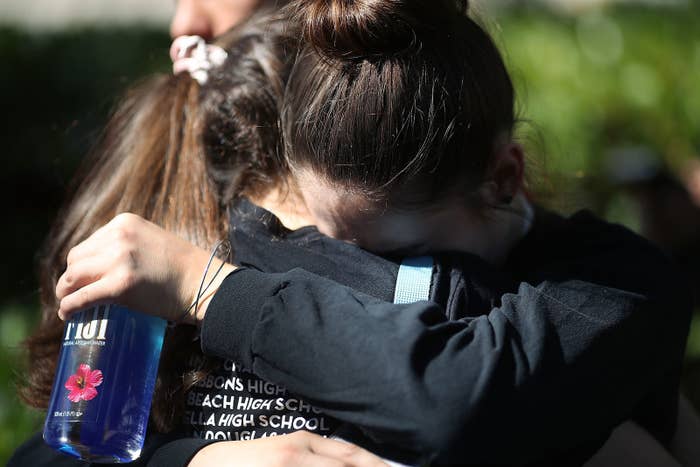
The FBI likely didn't follow up with YouTube last year to determine the identity and location of a person who posted that “I'm going to be a professional school shooter” under a vlogger's video.
In a statement, the FBI acknowledged that it had been tipped to the YouTube comment in September, which was posted under the name Nikolas Cruz, the same name as the suspect in a shooting that left 17 dead.
But the FBI said it “had been unable to identify the person who posted the comment.”
“No other information was included in the comment which would indicate a particular time, location, or the true identity of the person who posted the comment,” the statement said, adding that the FBI “conducted database reviews and other checks” without results.
In a follow-up press conference, FBI special agent in charge Rob Lasky said that “there [was] no additional information about the time, location or further identifiers about the person who posted the comment.”
YouTube did not respond to a request for information about the tip, but Google, which owns YouTube, posts publicly in its privacy policy that user information, like an account's IP address, is available for all users of its platforms. It also outlines a procedure by which law enforcement authorities can obtain the information.
How to Obtain Information
View this video on YouTube
At a minimum, simply logging onto a site provides information like a user’s internet protocol address, which, if a user isn’t using a rerouting service such as a Virtual Private Network at a public computer, can reveal a user’s likely location.
Law enforcement routinely obtains a subpoena or court order when it is trying to track a suspect, and Google’s policy is to hand over user information if a government compels it. But it's likely the FBI did not avail itself of the opportunity, even though the FBI thought enough of the tip that it sent agents to interview the vlogger, a Mississippi bail bondsperson named Ben Bennight, in September, and then contacted him within hours of Wednesday's shooting.
A threat such as Cruz’s would clearly have been enough for the FBI to get a subpoena, said Robert Cattanach, a former Department of Justice lawyer who has prosecuted cybercrimes on behalf of the US government. But the FBI receives so many tips that it might have considered it infeasible to go to such lengths when no crime had been committed.
“There are countless potential threats that come to the FBI's attention every single day. It’s challenging to say which ones deserve an initial inquiry, which ones deserve a full-court press. How do you justify following up or not following up?” Cattanach told BuzzFeed News. “These are literally life and death decisions that have to be made every day and I don't think it’s possible to get every one right.”
According to a biannual transparency report published by Google, in the latter half of 2017, US law enforcement — a large category that includes both the FBI and state and local police agencies — requested presented Google with 4,018 warrants and 7,855 subpoenas for user accounts.
Cruz, 19, has been identified as the alleged shooter in the Marjory Stoneman Douglas High School shooting in south Florida, the largest mass shooting so far this year and the deadliest school shooting since Sandy Hook, Connecticut, which killed 20 children and six adults.
YouTuber Bennight told BuzzFeed News that the comment about becoming a professional school shooter alarmed him when he came across it five months ago, and he immediately notified the FBI and YouTube, which removed the comment.
Whether identifying Cruz as the commenter would have prevented Wednesday's shooting is open to speculation. In another mass shooting in Florida, the 2016 Pulse nightclub shooting in Orlando, which left 49 people dead, the FBI had interviewed the suspected shooter three times before determining in 2014 that he posed no threat.
A similar decision was reached about Boston Marathon bomber Tamerlan Tsarnaev, who was the subject of an FBI investigation in 2012 after Russia alerted the US to its suspicions that he had terrorist ties. The FBI interviewed Tsarnaev and his family, but concluded the Russian allegations were unfounded.


